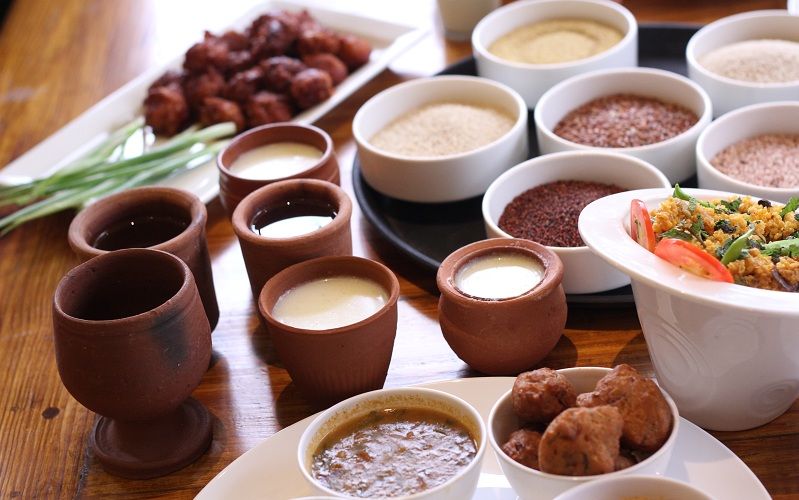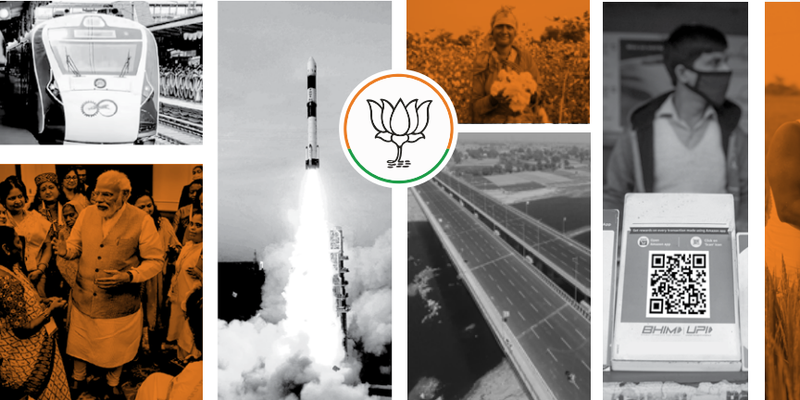When Bengaluru chose millet biryani on a weekend
Spearheaded by the Ministry of Agriculture, fitness enthusiasts from Bengaluru chose to binge on delicacies made of millets to celebrate World Health Day.
On the eve of World Health Day, India’s Silicon Valley ditched junk and processed foods in favour of varieties of food made of millets and other organic materials. Spearheaded by the Minister of Agriculture, Krishna Byre Gowda, the event was a precursor to the National Organics & Millets Fair 2017 which is scheduled for a month from now.

On April 7, many young social entrepreneurs and farming enthusiasts gathered at Bengaluru’s Green Path hotel to initiate a special session titled ‘Health and Wellness through Organics and Millets’. The workshop saw participation from leading health and nutrition experts including Wanitha Ashok; Dr Sheela Krishnaswamy,Member, Board of Directors at International Confederation of Dietetic Associations; Dr Usha Ravindra, Associate Professor at University of Agricultural Sciences, GKVK;, Dr Sundervalli, Faculty at Mount Carmel College; and various other nutrition, health, and fitness influencers. The workshop included sessions on the nutritional value of millets, processing and value addition of millets — health benefits, and the introduction of millets in the diet through KAP (knowledge, attitude, and practice).
Millets are small-seeded cereals and grains that are indigenous to India and African countries. Millets are considered to have been cultivated in India from prehistoric times. Their importance as food can be realised from the fact that millets, which require 70 percent less water than rice, are being cultivated in an area of about 30 million acres in India. Grown without pesticides and minimal chemical fertilisers, these environment-friendly crops are low cost and can be grown well even on marginal lands, with low rainfall.

They are nutritional powerhouses which are high in proteins, dietary fibre, B-complex vitamins, essential amino acids, folic acid, and Vitamin E. They are particularly high in minerals such as iron, magnesium, copper, phosphorus, zinc, calcium, and potassium. Their nutritional and health benefits have created a surge in demand for a variety of millets.
Speaking to the YourStory team, the agriculture minister offered his thoughts on why such small-scale events are the need of the hour to reach out to a wider audience. He said,
We can’t change public perception overnight. We have to work through multiple stakeholders and offer many strategies to introduce the wider audience to alternative forms of consumption. These millet melas and such gatherings are a step towards it.

He further added that,
These melas and gatherings are an ice-breaker to the consumers that there are healthy ways of consumption and that their benefits are quite impressive. This opportunity also empowers the farmers by showing them that the consumers and market have a demand, and they are then interested in cultivating organic food.
Scheduled for April 28–30, the National Organics & Millets Fair will present a great opportunity for farmers, buyers, sellers, and exporters of organic produce and millets. The fair will also help organic product processors and manufacturers of farm equipment showcase their respective products and expertise in organic and millets-related areas. The fair will serve as an important confluence for all organic stakeholders for the promotion of trade and sharing information and knowledge about the organic agribusiness.











